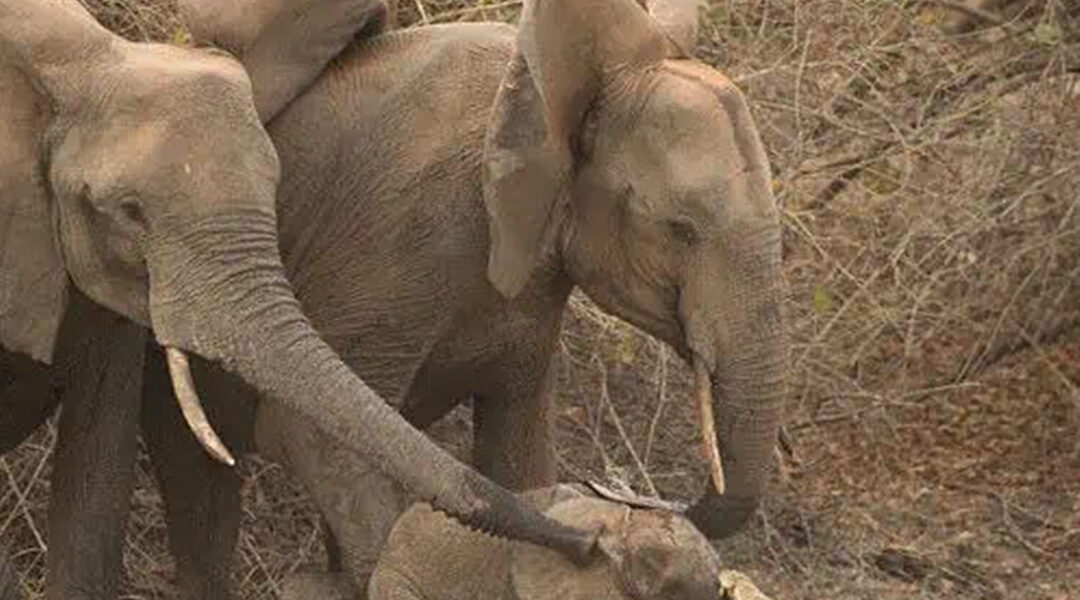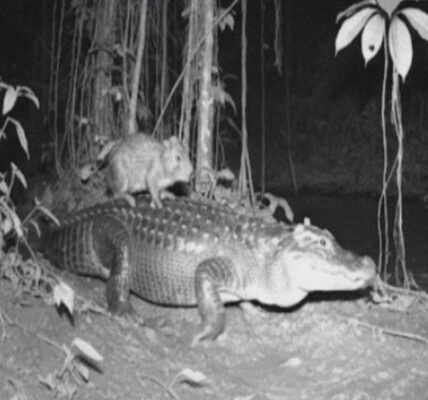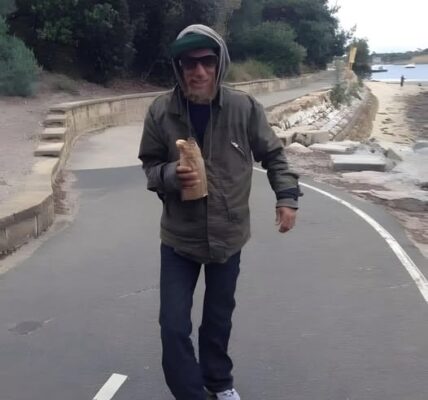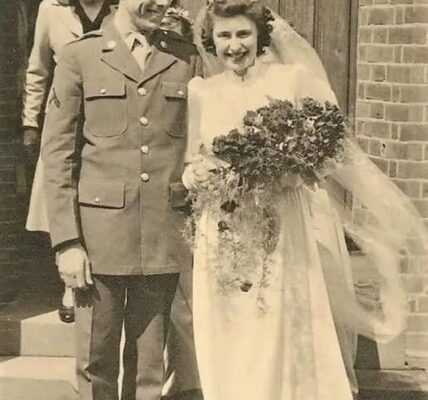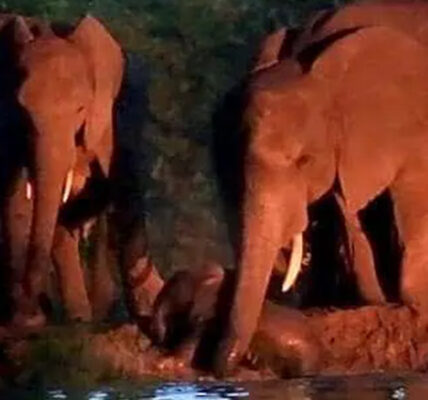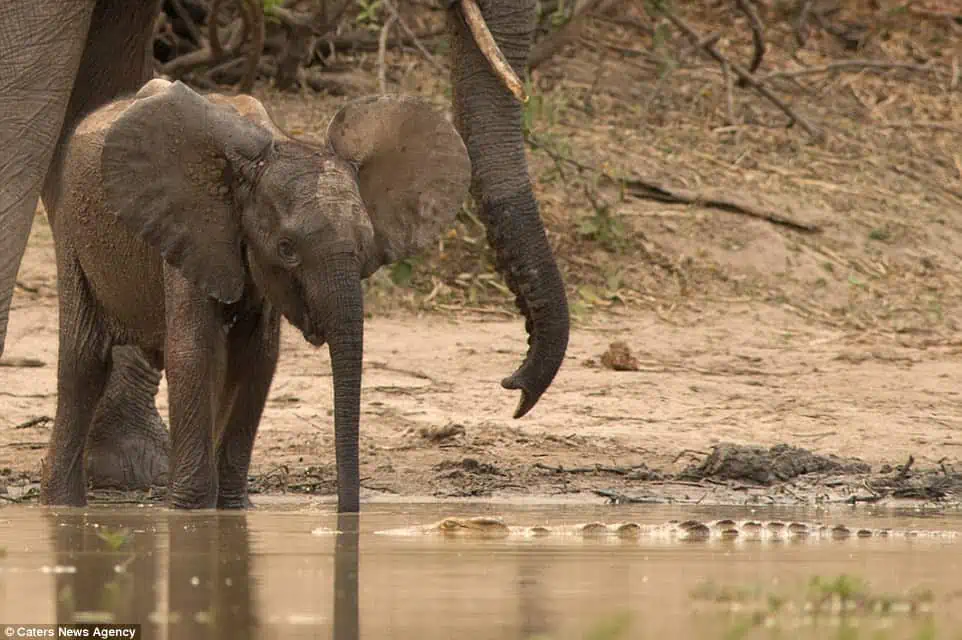
In the still heat of the African bush, a herd of elephants wandered down to a familiar watering hole. Dust swirled with every heavy step, and the sound of splashing signaled the arrival of playtime for the youngest among them. Among the herd was a calf, full of innocence, who knew little about the dangers that often lurked just beneath the surface of the murky water.
The baby elephant knelt clumsily, lowering its mouth to drink. Too young to master the art of using its trunk properly, it splashed, rolled, and tumbled in the shallows. Its playful innocence was a striking contrast to the predator lying in wait just beneath the surface — a crocodile, patient and calculating, watching every move.

And then it happened.
With a sudden burst of speed, the crocodile lunged from the water, its jaws snapping shut around the calf’s trunk. The moment was so fast it was almost invisible to the eye — one instant calm, the next, chaos. The calf let out a piercing cry of pain and terror, its trunk pulled violently as the reptile thrashed, trying to drag the young elephant under.
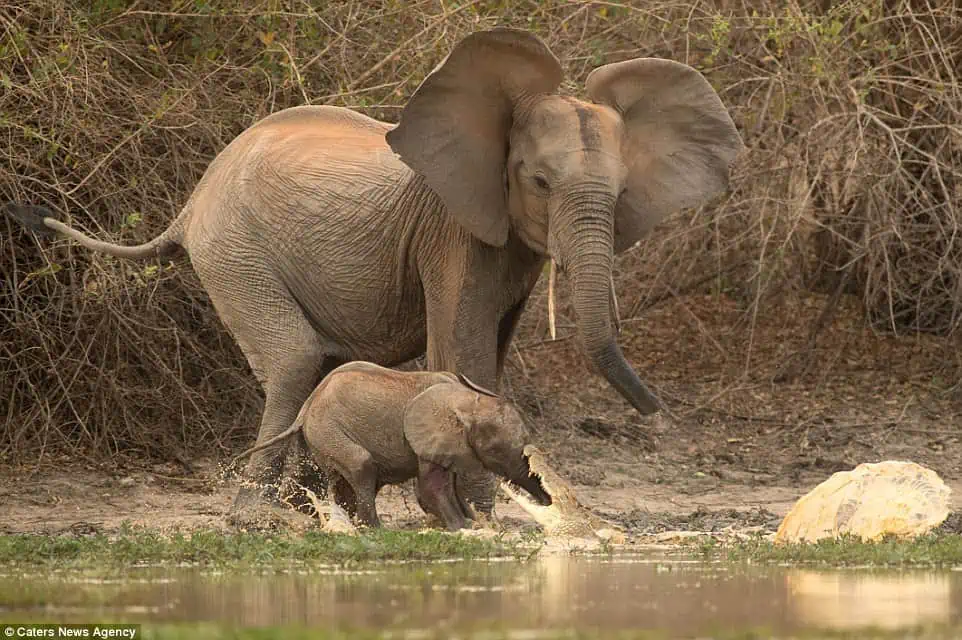
The herd reacted in panic. Trumpets echoed through the valley as mothers and aunts rushed to the edge, stomping and trumpeting in desperation. Dust rose, water churned, and the air filled with the sound of life and death colliding.
The calf struggled fiercely, its tiny body twisting against the pull of the crocodile. For a moment, it seemed hopeless — the reptile’s grip was too strong, its body too powerful. But then, with a mixture of sheer determination and the weight of its frantic mother’s charge, the tide began to turn.
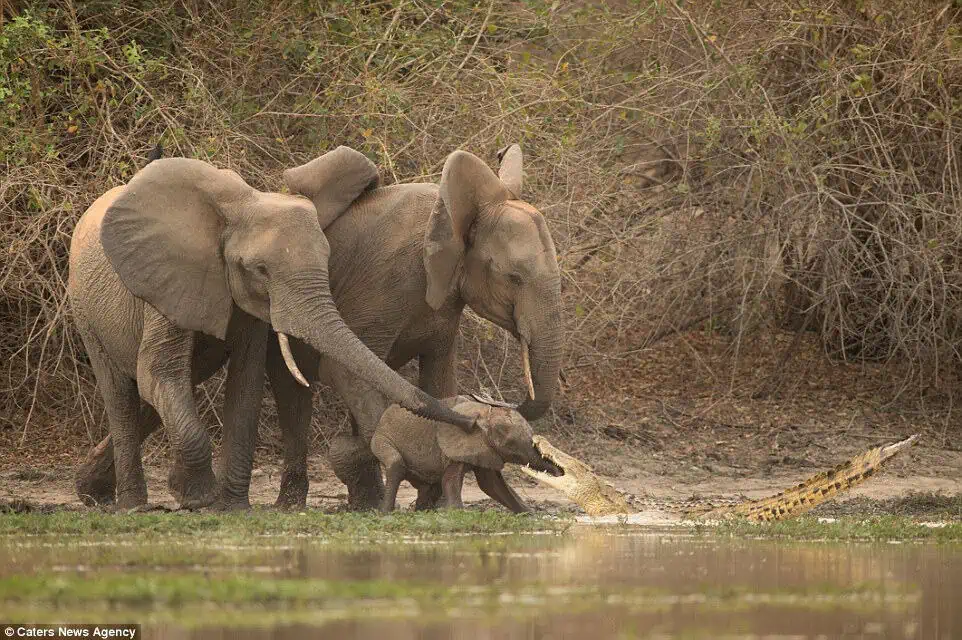
The mother elephant stormed forward, her size and fury impossible for the crocodile to ignore. Trumpeting with rage, she swung her trunk and stomped at the water’s edge. The crocodile, dragged almost entirely out of the pool by the calf’s resistance, finally released its grip. Defeated, it slid back into the depths, disappearing as quickly as it had appeared.
The baby elephant stumbled backward, bleeding but alive. Its small body trembled, but within moments, it was surrounded by the herd — touched, nudged, and comforted by its towering protectors. The mother stood closest, gently brushing her trunk against her calf’s body, as if to reassure it: You are safe now. You are not alone.

Nearby, Zimbabwean farmer and photographer François Borman had been watching, camera in hand. For hours he had waited in the dust, hoping to capture something extraordinary. What he witnessed instead was a moment of primal survival, a drama as raw as the earth itself. Through his lens, he recorded the calf’s scream, the crocodile’s thrash, and the mother’s unstoppable rescue.
“I was shocked,” François later said. “I had been hoping for action, but never something this brutal, this real. To see a young calf fight for its life — and to see the power of a mother’s love save it — was unforgettable.”
For the calf, it was a painful lesson in the dangers of the wild, where every drink of water carries a risk. For the herd, it was a moment of unity and strength, reminding them — and us — of the bond that holds family together in the face of threat.
And for those lucky enough to witness it, it was a story that will echo long after the dust settles: the story of a baby elephant that survived, not because it was the strongest, but because it was never left to face danger alone.
